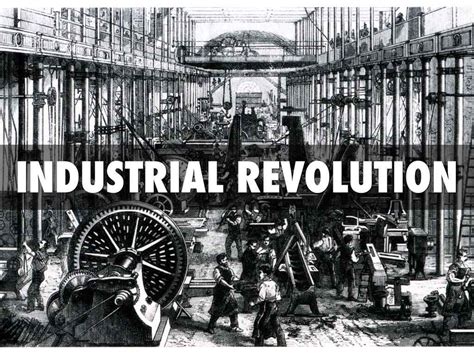The Dawn of Industrialization
In the mid-18th century, Britain emerged as the birthplace of the Industrial Revolution, a transformative period that profoundly altered both its society and the global landscape. This extraordinary era marked a shift from an agrarian economy to one based on mechanization and mass production.

Factors Contributing to Britain’s Industrialization
Britain possessed a unique combination of factors that fostered the rise of industrialization:
- Abundant natural resources: Britain’s rich deposits of coal and iron ore provided essential raw materials for industrial production.
- Skilled labor force: Britain had a large, skilled labor force willing to adapt to new technologies and work in factories.
- Technological innovations: British inventors and engineers made groundbreaking advancements in steam power, textiles, and transportation, which revolutionized industrial processes.
- Political stability: Britain’s stable government and favorable economic policies created a conducive environment for investment and innovation.
- Access to global markets: Britain’s maritime dominance and extensive colonial possessions provided access to new markets for manufactured goods.
Key Innovations and Industries
The Industrial Revolution saw a surge in technological innovations that transformed various industries:
- Textile industry: The invention of the spinning jenny, power loom, and cotton gin drastically increased textile production and affordability.
- Steam power: James Watt’s steam engine revolutionized transportation, powering ships and locomotives, and provided energy for factories.
- Iron and steel production: New techniques, such as the Bessemer process, made iron and steel production more efficient and accessible.
- Transportation: The development of canals, railroads, and steam-powered ships improved transportation infrastructure and facilitated trade.
Economic and Social Impacts
The Industrial Revolution not only reshaped the economy but also had profound social consequences:
- Urbanization: Industrialization led to a massive migration from rural areas to urban centers, creating densely populated cities.
- Increased productivity: Mechanization and mass production resulted in a significant increase in goods and services, leading to economic growth and heightened consumerism.
- Labor relations: The concentration of workers in factories led to the emergence of labor unions and social reforms aimed at improving working conditions.
- Environmental impact: The rapid industrial expansion led to pollution, deforestation, and environmental degradation, highlighting the need for sustainability.
Legacy and Global Impact
Britain’s Industrial Revolution had a profound impact not only on its own society but also on the world:
- Economic dominance: Britain became the world’s leading economic power, fueled by its industrial prowess.
- Spread of technology: Industrial technologies and practices were adopted by other nations, sparking industrialization in Europe, North America, and beyond.
- Economic inequality: Industrialization led to a widening gap between the wealthy industrialists and the working class, creating social and economic tensions.
- Inspiration for future innovations: The spirit of innovation and technological advancement fostered during the Industrial Revolution served as a model for future technological breakthroughs.
Key Figures in the Industrial Revolution
Several key figures played instrumental roles in the Industrial Revolution:
- Thomas Savery: Invented the first practical steam engine (1698).
- James Watt: Improved the steam engine, making it more efficient and widely applicable (1769).
- Richard Arkwright: Patented the spinning jenny, which mechanized textile production (1764).
- Edmund Cartwright: Developed the power loom (1785).
- Henry Bessemer: Invented the Bessemer process for steel production (1856).
Conclusion
The Industrial Revolution in Britain was a pivotal period that transformed society, the economy, and the world. The confluence of factors, technological advancements, and social changes ushered in an era of unprecedented technological progress and economic growth. The legacy of this era continues to shape our modern world, underscoring the enduring impact of innovation and industrialization.
